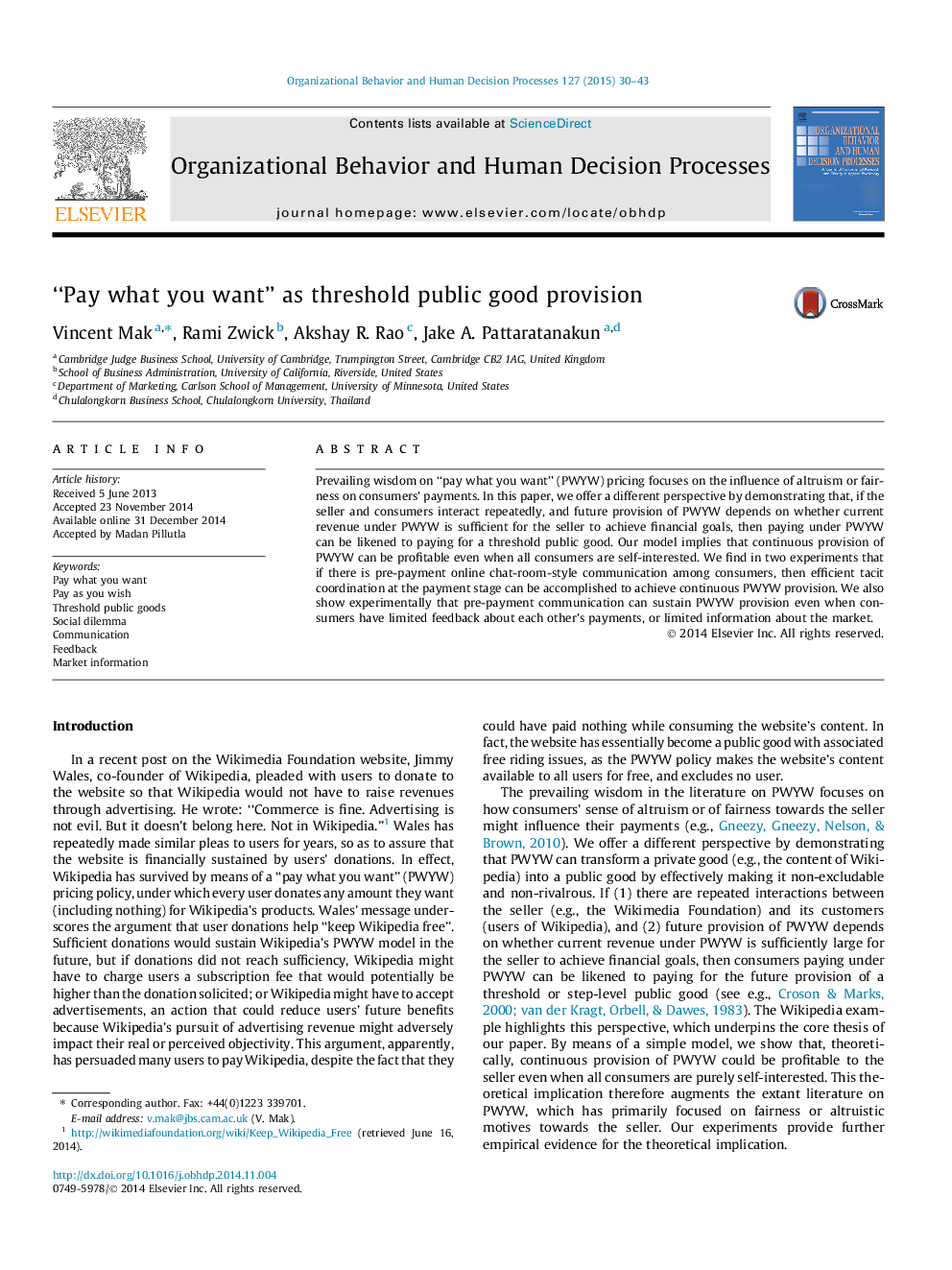| Article ID | Journal | Published Year | Pages | File Type |
|---|---|---|---|---|
| 888514 | Organizational Behavior and Human Decision Processes | 2015 | 14 Pages |
•Continuous provision of “pay what you want” (PWYW) can be profitable even when all consumers are self-interested.•Hinges on seller’s threat to switch to fixed pricing if PWYW is unprofitable.•Theory shows that PWYW in such a setting is like threshold public good provision.•Experiments show that consumer communication is crucial in sustaining PWYW.•Communication works even when consumers have limited information about each other.
Prevailing wisdom on “pay what you want” (PWYW) pricing focuses on the influence of altruism or fairness on consumers’ payments. In this paper, we offer a different perspective by demonstrating that, if the seller and consumers interact repeatedly, and future provision of PWYW depends on whether current revenue under PWYW is sufficient for the seller to achieve financial goals, then paying under PWYW can be likened to paying for a threshold public good. Our model implies that continuous provision of PWYW can be profitable even when all consumers are self-interested. We find in two experiments that if there is pre-payment online chat-room-style communication among consumers, then efficient tacit coordination at the payment stage can be accomplished to achieve continuous PWYW provision. We also show experimentally that pre-payment communication can sustain PWYW provision even when consumers have limited feedback about each other’s payments, or limited information about the market.
